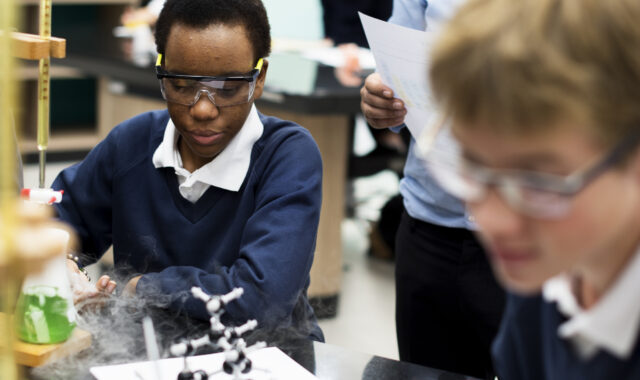
Cindy D.
MSci Natural SciencesWhich university are you studying at?
UCL
What subjects and qualifications did you take at school or college (e.g. A Levels, IB, BTECs, EPQ)?
At secondary school I took 11 GCSEs (including Triple Science) as I was quite indecisive and wanted to hold onto as many subjects I could! However, at college I narrowed my options down to A Level Art and Design, Biology, Chemistry and an EPQ on the environmental impact of the chemical industry, which I received A*, A*, A*, A* grades in.
Why did you decide to pursue this degree at university?
My interest in this Natural Sciences stems from its interdisciplinary nature, which aligned perfectly with my passion for both Chemistry and Biology. Throughout my academic journey, I’ve always thrived when exploring the intersection between these two fields, for example, how chemicals in drugs affects the mind. Consequently, I was eager to pursue a course that fosters this cross-disciplinary mindset and offers challenges beyond a single discipline. For example, one of my favourite specialised math modules taught arithmetic in a way that is both applicable to deriving difficult chemical reaction rates as well as the analytical skills essential for Biostatistics.
What does an average day or week at university look like for you (e.g. lectures, practicals, independent study, other interests)?
An average week can really vary depending on the specialisms offered by Natural Sciences you choose to pursue. In my case, I typically have 14 hours of lectures, workshops and seminars and an additional 2-4 hour Chemistry lab fortnightly, most of which are studied alongside single-discipline students. On top of quite a rigorous academic schedule, I try my best to organise independent study between classes so that I can hang out with my friends and work remotely making educational resources outside of university.
What aspect of your course do you most enjoy?
Being able to study elective modules offered by different departments, such as History, Philosophy and Social Studies of Science, gives me a chance to diversify the way I view science and communication. I also like that although our cohort pursue different specialisms, our core modules still encourage us to share with each other our unique perspectives we’ve gained.
What do you find most challenging about your degree?
Natural Sciences is undoubtedly challenging in that we have chosen to study almost two different sciences to the same rigor as single-science students on the same timeline. Consequently, trying to balance clashing deadlines and classes can be an issue.
What are your aspirations after your degree?
After realising that I’m very clumsy in the lab, I’ve found that my aspirations are better diverted towards academia and research. I think university is a brilliant place to try out as many work experiences and attend career events to gain more insight and decide where my strengths and cross-disciplinary knowledge would be most valuable.
What would be your top piece of advice for anyone wanting to study natural sciences?
I definitely would encourage those that enjoy a broad scope of subjects towards Natural Sciences. It is quite an unusual degree that receives intrigue and questions around ‘a jack of all trades is a master of none’. However I believe there are many unique advantages, including benefitting from absorbing expertise from multiple specialisms at the same quality as those on single-discipline degrees.


Comments